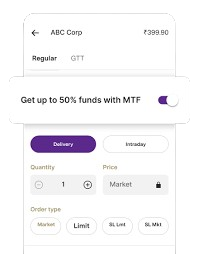Technology is the game changer, the disruptive and transformational force to reckon with across all industries.
Pushing the envelope of traditional banking channels, internet or net banking is increasingly becoming popular among retail and domestic customers who have been swept by the swift, seamless, secure, flexible and adaptable digital product and service offerings through faceless, paperless transaction (cheques, demand drafts, passbook, pay-in-slips) and cashless transactions ( ATM, debit card, IMPS, NEFT, RTGS etc)by banks across India.
Infact, when against the backdrop of Covid-19 pandemic it had become chaĺlenging to step out of home even to visit an ATM or bank branch. One had this unsettling fear of stepping into the crowds.
Consequently, the pace of adoption of netbanking services has been on the rise in recent times.
As the scale and pace of netbanking adoption gathers momentum, Banks across India continue to invest in enhancing their digital foundation architecture which is in synchronisation with the latest technology, risk profile, and within the regulatory ambit.
Consequently, trustworthiness has and always will be the single most valued USP of the bank, besides its ability to provide personalised offerings to its customers.
Just to give you a perspective, digital banking was introduced in India in the mid-1990s with ICICI Bank being the foremost player to adopt digital technology.
Over the years, the Indian digital banking landscape evolved with all banks offering digital solutions.
The major impetus came in 2016, with the launch of UPI ( Unified Payment Interface) system which further democratised the digital banking landscape.
Today, you can make digital payments in a variety of ways such as:
Internet Banking
Netbanking or Internet Banking or e-banking or online banking is a method to carry out financial transactions using the bank's web portal.
Mobile Banking
As the name suggests,banking transactions are carried out through the bank's mobile app on your smartphone.
Unified Payments Interface (UPI)
As per the UPI system,it allows you to pay directly from your bank account, without the need to type in the card or bank details.
Mobile Wallets
Just as you carry cash in your purpose or pocket, mobile wallets allow you to keep cash in a digital format. The fund balance in your mobile wallet can be used to transfer money.
Aadhaar Enabled Payment System (AEPS)
As per AEPS facility, you can transfer money
between two Aadhaar linked Bank Accounts.
Debit/credit and prepaid card
Unstructured Supplementary Service Data(USSD)
This facility is available for those set of customers who do not have access to proper banking and internet facilities. As a USSD customer you can just *99# on your feature phone and carry out your mobile banking transaction.
PoS Terminals and Micro ATMs
Different types of netbanking transactions :
National Electronic Fund Transfer (NEFT)
As an online payment gateway, NEFT facilitates one-to-one funds transfer across NEFT enabled banks in India, for both retail and corporate customers, provided both parties have active accounts with their respective or same bank.
Real Time Gross Settlement (RTGS)
As an online payment channel, let us understand what ' Real time ' means and then ' Gross Settlement
'Real Time' means that as soon as the system receives account transfer related settlement instructions, it processes it without a time lag, implying on a real time basis.
Gross settlement implies, the settlement of funds transfer instructions occurs individually on an instruction by instruction basis, without netting.
The minimum threshold fund to be remitted through RTGS is ₹2 lakh. On the other hand, there is no maximum threshold for RTGS transactions. In addition, the transaction processing window at the bank is from 9.00 hours to 16.30 hours on weekdays and from 9.00 hours to 14:00 hours on Saturdays for settlement at the RBI end.
Electronic Clearing System (ECS)
The ECG payment gateway is typically used
for making utility-bill-payments such as credit card payments, electricity bills, insurance premiums, loan repayments and telephone bills.
Immediate Payment Service (IMPS)
IMPS payment gateway leverages the mobile phone technology ( including internet and ATM) to make fund transfers 247365.
At this juncture, it is worthy to mention that as a customer, you don't have to stress yourself to choose between traditional banking or digital banking. In Fact it is extremely crucial that you select a combination of physical and online banking channels that best suit your financial needs and your level of comfort, perhaps a combination of technology and human interface.
Having said that, the advantages of net banking are simply formidable.
Convenience and convenience and convenience
It is all about convenience, convenience and convenience.
For example, using the netbanking/online channel one can access the account to carry out the transaction 247365 anytime, anywhere. For example, going cashless by paying your utility bills online or transferring funds without visiting a bank branch.
Richer user engagement and experience
It is all about engaging with the customer through multiple channels by providing them personalised services at their choice of date time and location.
For example,by leveraging netbanking, banks can provide interactive virtual chat to resolve your queries, locating nearby ATMs, fund transfer using mobile apps, personalised financial/investment advice, e-letters to help you make smarter decisions.
Secure and safe multi-layered digital architecture
Notwithstanding the advantages of net banking - be it convenience or richer user experience, nothing compares to ' secured and safe transaction' as the foremost requirement of net banking transactions.
As a customer, what you seek the most from the bank is 'trust' , across banking channels, offline, online, mobile banking.
Banks across India and the globe have and continue to invest in their digital architecture with upgraded technology, flexible platform, best in class cyber security guidelines to provide secured and safe transactions to each user.
Advantages & Disadvantages of Net Banking -
For example:
- Access to uninterrupted internet connection
- Cyber crimes , frauds - phishing, Malware etc.
- For making cash deposits, the customer cannot use the Internet banking channel. You have to visit your nearest branch to deposit money.
- Lack of human interaction

